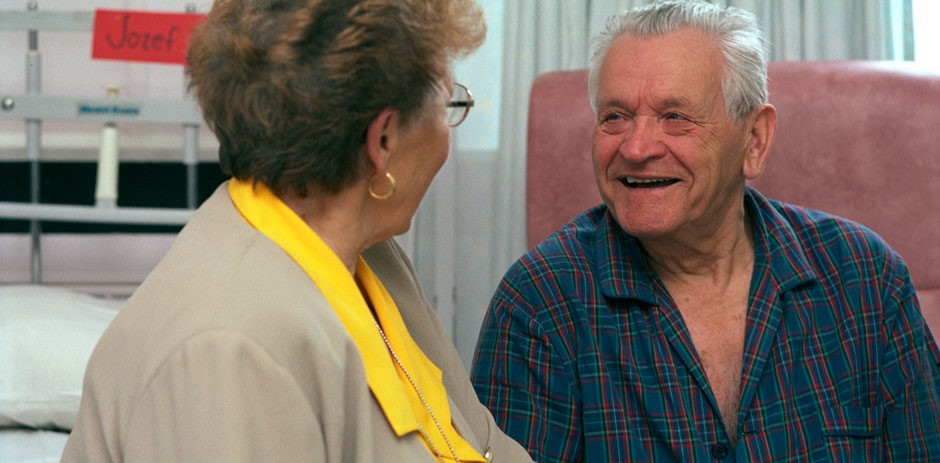)
Delayed transfers of care
Delayed transfers of care (DTOCs) could be reduced by an increase in local home care and care home provision, study finds
Local discharge arrangements vary between areas, and there is no consistent discharge process across local authorities, making it difficult to describe ‘typical’ models
Understanding why delayed transfers of care (DTOCs) among older people are a continuing problem and finding ways to reduce or prevent them are high priority issues, especially with an ageing population nationally. Previous research has found that following discharge unnecessarily long stays can result in increased requirements for social care support, yet there has been little research into the relationship between DTOCs and community support.
A study led by Dr Karen Jones from the Personal Social Services Research Unit (PSSRU) at the University of Kent has explored at why delays in discharge happen and how they might be reduced or prevented.
The study used publicly available data to assess the level of local DTOC rates that could not be explained by local demand and supply characteristics, and the influence of social care supply, local discharge processes and urgent and emergency care vanguard on DTOCs, respectively.
An online questionnaire exploring local discharge arrangements was completed by thirty-one discharge teams, and interviews were carried out with fifty-two professional stakeholders across six case study sites. Local authorities, NHS, and voluntary and care organisations made up the case studies to reflect geographical and population variations in DTOCs. The interviews examined perceived causes of delays and facilitators of smooth transfers, strategic issues and teams and processes.
Local authorities with unexplained DTOC rate
Within the 150 local authorities examined, the research team identified DTOCs that could not be explained by demographic and demand and supply factors, along with DTOC rates that were both higher and lower than expected.
A unitary local authority in the East Midlands was notable for making significant improvements in performance along with one in the South West where the lower-than-expected DTOC rate could have been impacted by the integration of health and social care.
Social care influence on DTOCs
Quantitative analysis of home care and care home supply showed that DTOC rates were significantly affected by social care supply.
Every extra home care provider per 10 square kilometre decreased DTOCs by 6.7–8.0%, equivalent to 178–212 days per quarter for the average local authority.
The results also showed some evidence of a care home bed effect: a 1% increase in care home bed supply reduces DTOCs by 0.4–0.55%.
The impact of local discharge processes on DTOC rates
Nine of the local authorities examined during the study were Urgent and Emergency Care (UEC) vanguard partners, which the study discovered was related to a 37.2 to 40.5 reduction in local DTOC rates when compared to the rest of the country. The researcher team found it difficult to highlight why reductions in DTOC rates could be influenced by UEC vanguards but suggested that this could be due to them being required to move activity to the most appropriate care settings; this activity was known as channel shift.
The research team noted that early planning between UEC vanguard partners resulted in more time to help patient’s families prepare for discharge, and to set up care packages.
Factors perceived to affect DTOCs
All the sites examined in the case studies experienced social care capacity shortages at some point and highlighted potential bottlenecks in flows through the system. Hastily prepared care packages could result in readmission if they broke down, leading to people’s mobility and independence being adversely affected if they are discharged to temporary beds.
Reablement teams, bridging services and short-term assessment beds were identified as potential buffers to absorb flow during peak times, but were also vulnerable to blockages. Potential solutions highlighted by one case study included remodelling reablement teams to offer post discharge reablement or using independent providers to deliver flexible home care post discharge.
The research team noted that “DTOCs will occur in practice and could be alleviated by increases in local home care and care home provision, improving information flow throughout the care system, improving communication channels between organisational representatives across the care sector, and planning early for hospital discharge to provide more time to set-up care packages”.
Full summary findings
NIHR SSCR (2021) The Influence of Social Care on Delayed Transfers of Care (DTOCs) Among Older People, Research Findings 116, NIHR School for Social Care Research, London.
View the team’s NIHR SSCR webinar on the project
Further information
This study was funded by the NIHR School for Social Care Research and led by Dr Karen Jones from the Personal Social Services Research Unit at the University of Kent.
The findings were completed before COVID-19 and have been published to support NIHR SSCR’s requirement that findings from all completed studies are made publicly available.
















